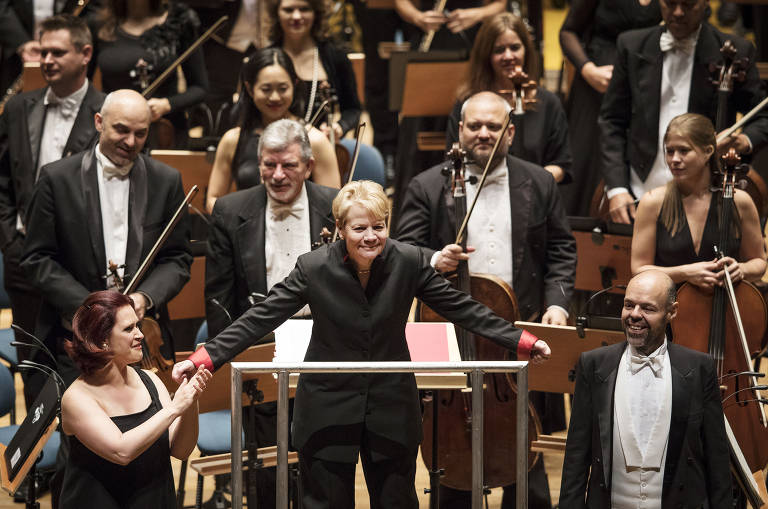Arthur Nestrovski had been reluctant to translate "Ode to Joy" into Portuguese for six months. But during a morning walk, the translated text—be sung by the 104 voices of the Osesp choir from this Thursday (12)— finally began to emerge.
"They wanted to close the deal, but I asked them to wait, to let me try. But then, until it was fast," says the orchestra's artistic director. "You write in a week, but somehow it takes a lifetime to write that."
The introduction of Friedrich Schiller's poem in Portuguese - for the first time - is one of the attractions of the special All Together: A Global Ode to Joy. A partnership of Marin Alsop, Osesp's head conductor, with Carnegie Hall of New York, the project proposes to take the "Ninth Symphony" to five continents in celebration of Beethoven's 250th anniversary.
Throughout 2020, Alsop will direct the "Ninth" in the United States, South Africa, China, and Australia, among other countries, starting with Brazil, in Sala São Paulo. The presentations mark his farewell as Osesp's head conductor.
In addition to translating "Ode" into local languages, the project foresees the creation of "Ninth" dialogues with the culture of each country.
"I wanted to find a context that would give coherence to Brazilian music that will be played between the symphony movements," Nestrovski said. "So I thought about the contemporaneity of 'Ode' along with slavery in Brazil."
In the São Paulo performances, "Nona" will be interspersed with an excerpt from "Cabinda - Somos Todos Pretos", a 2015 play by Bahia's Paulo Costa Lima, and an unprecedented adage from Rio's Clarice Assad.
Translated by Kiratiana Freelon
